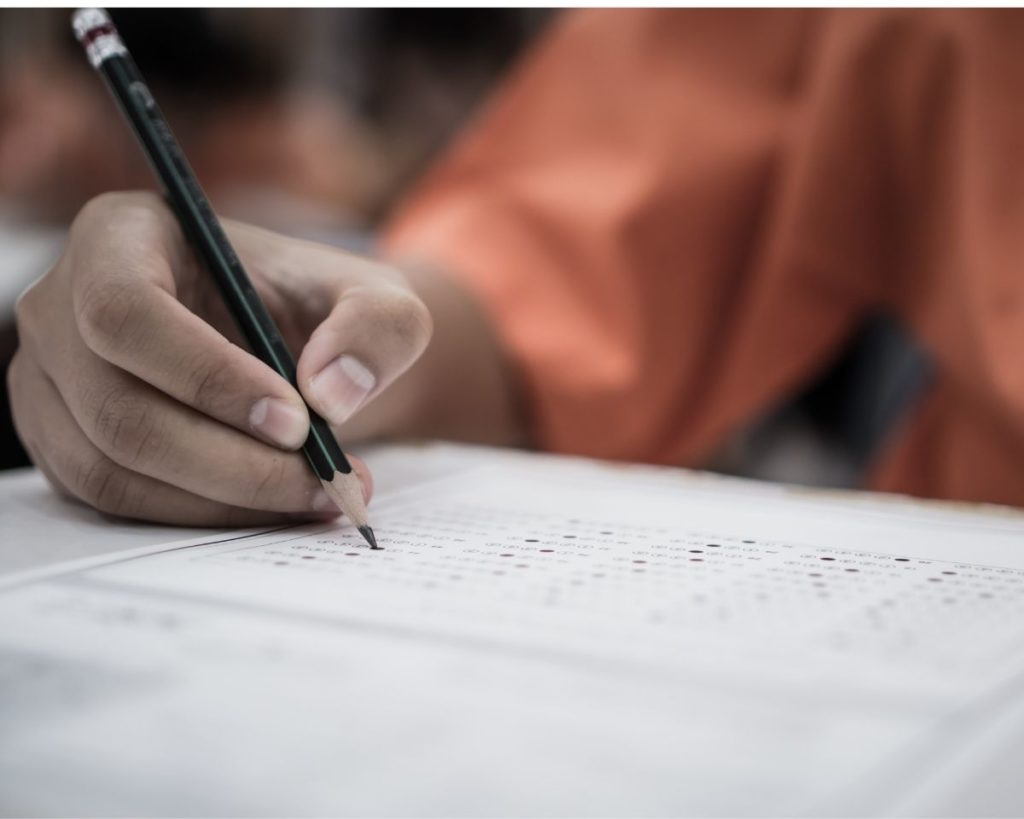It’s no surprise that after a year of pandemic-related learning disruptions, scaled-back standardized tests in Colorado showed significant learning loss. Denver Public Schools was no exception.
The public should see more detailed breakdowns in the coming days, but the data released to date is sobering. While many fewer students took tests than in a normal year, and only certain grades were tested in basic subjects, statewide, students “performed at levels last seen five to six years ago,” according to Chalkbeat.
In Denver, 22 percent of students met or exceeded expectations in math, and 36 percent in literacy, according to district information. But huge numbers of students opted out of the tests: just 46 percent of ‘required’ students tested in math, and 51 percent in literacy.
Last spring saw a concerted campaign to get parents to opt their children out of testing. Movement leaders included school board member Tay Anderson, who has also called for the abolition of all state tests, and current and former Denver educators. Some of those same people now want to dismiss the results as meaningless, in part because participation was so low. That’s a nice example of circular logic.
Apparently, school performance has become another fact-free zone, where ideology, rumor, and innuendo are more important than evidence. The political right in recent years has mastered this sad and dangerous strategy, but when it comes to testing, the left is showing that two can play that game.
Yes, standardized testing is flawed and culturally biased, and became an over-emphasized obsession of district and school leaders over many of the past 20 years.That led to directives to ‘teach to the test,’ which narrowed curriculum and caused essential components of education, like arts and music, to be scaled back or eliminated.
But that doesn’t mean all standardized measurement is inherently evil.
In fact, where would we be without it? Stumbling around in the dark, with no idea about how schools are serving the students with greatest needs. Education tried that before — back in the previous century. It allowed school systems to hide from view how poorly many schools, especially in urban districts, served their students. That doesn’t sound like a position progressives should want to defend.
As education policy expert Rick Hess wrote recently in Education Week: “We might not need to test every kid every year, and the ‘3 Rs’ are surely not all that matter when it comes to education. But regular assessments of these basic skills provide important checks on what’s happening in schools, give us a sense of which schools or systems are doing especially well or poorly, and help us identify instructional practices that work. And let there be no doubt: Mastering literacy and numeracy is essential for every young American in the 21st century.”
It was heartening to watch a DPS school board work session last week and hear district staff largely avoiding excuse-making and instead focused on how to move forward and accelerate learning in the coming years. Whether they can do so successfully is an open question.
Denver Superintendent Alex Marrero was circumspect during the work session, saying only that the results demonstrate that the district has challenges and will continue to have them. The previous week, however, at an African Leadership Group educational forum, Marrero was more assertive.
“What was different before the pandemic? The answer is nothing,” Marrero said. “It took a worldwide emergency to put a highlight on the fact that our system is not addressing what our students (need)….It is a system issue and it should not take a worldwide pandemic for us to realize what has been the case for eons and eons.”
While district officials were acknowledging that test results showed how much work lies ahead of them, people with more ideologically driven agendas showed less restraint. Those who post regularly on the “Flip DPS Right Side Up” Facebook group, where people who oppose testing and school choice find a home, were in full cry denouncing standardized testing and attempting to spin away the results.
Teacher-developed formative assessments are much better indicators of where students are, and should be the only testing conducted, they argued.
While formative assessments provide vital real-time data for teachers and most if not all schools use them in that way, standardized tests are designed to serve a different and also vital purpose.
Surely there is a way to find reasonable common ground, with limited standardized testing every year providing a snapshot of how subgroups of students are performing in schools across the state. That’s not fomenting competition, as some misguided board members and advocates would argue. It’s promoting accountability and improvement.
Shouldn’t we want all that?




